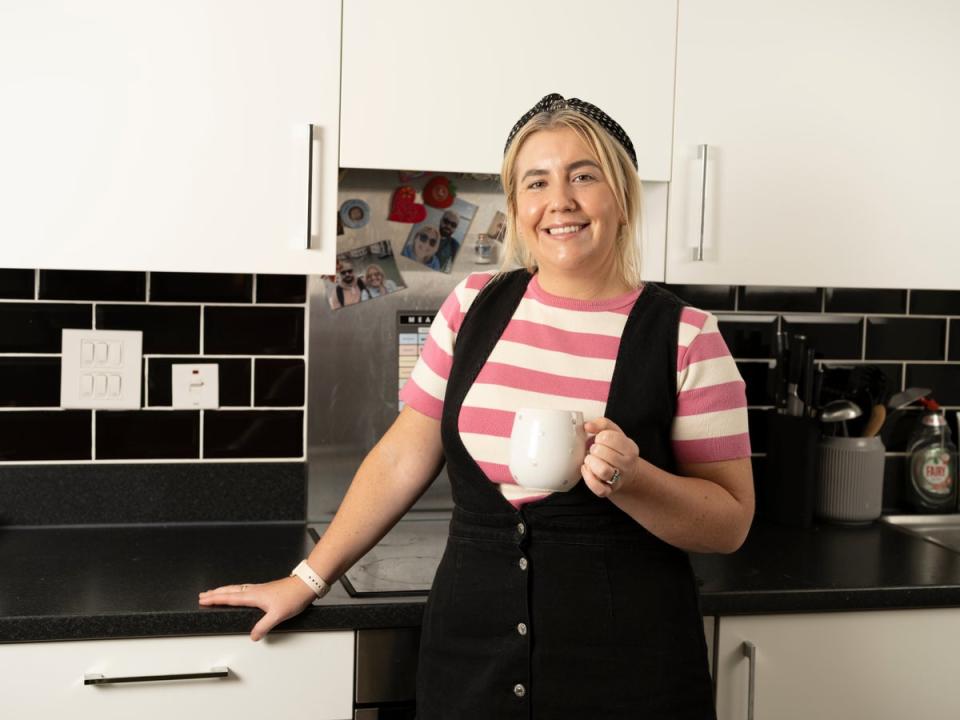Mortgage clinic: ‘I can’t sell my flat. Can my fiancé buy independently and get first-time buyer benefits?’

Emma Maloney, 36, is a product owner who bought a two-bed flat off-plan in Kidbrooke with 25 per cent shared ownership in 2018.
She and her fiancé agreed this spring that they wanted to move before their wedding next year. “We want to move out of London to be closer to family, so we got the ball rolling on the selling process.”
She spoke to her housing association about selling up and put the property on the market for £540,000. Since March, they have had only one viewing, despite dropping the price to £475,000.
Frustratingly, this is partly due to the housing association’s strict affordability criteria about who can buy in the block. “Our dilemma, after having little to no interest in our flat, is what do we do now?”
The details
Price paid in 2018 with 25% shared ownership: £510,000
Mortgage rate on a three-year fixed: 3.35%
Mortgage balance: £106,000
Monthly repayments: £602 (mortgage); £1,350 (HA rent)
There are a few options available to Maloney: she could sit tight, hope the market drops and staircase up to 100 per cent so she can sell free of the housing association.
Alternatively, as Maloney bought the flat in her name and her partner doesn’t own a property, she would like to know whether he could buy somewhereindependently of her, and whether this needs to be done before their wedding.
He would get all the first-time buyer benefits and the mortgage would be in his name alone, with the idea that she could be added to the mortgage later. They would stay in the current flat until they sell. “We are not sure what other options we have but we feel trapped not getting any viewings.”
The advice
Kirsty White, Tembo
Re-selling a shared ownership property isn’t always easy. It’s a downside of the scheme as you are beholden to the housing association’s resale criteria.
It would be my strong suggestion that Maloney keeps her flat on the market. Subject to the housing association’s rules, she will only need to keep it on the market with them for a set period of time, and should then be able to sell on the open market.
Staircasing to 100 per cent ownership is an option, but the housing association would dictate the market value for staircasing, so Maloney might overpay. Also, an independent valuation might be required, there will be legal fees and she may need to refinance her existing mortgage.
With regard to Maloney’s partner buying separately, this would need to happen before the wedding. Once married, they are counted as one entity and her partner would lose his first-time buyer stamp duty relief.
While they remain unmarried, it would be possible for him to buy and retain his first-time buyer rights.
If the purchase is unaffordable for her partner alone, he could look at using a Joint Borrower Sole Proprietor mortgage with Maloney. This is a form of guarantor mortgage, using a loved one’s income to bolster affordability. Later on, there is the ability to do a transfer of equity to add Maloney to the property deeds.
Be mindful that there could be stamp duty implications for doing this after the initial purchase, even if her property sells.
Mark Humphrey at MHC Mortgages
Your fiancé could buy your new home in his name only, assuming he meets the lender’s affordability assessment.
To benefit from the first-time buyer stamp duty relief, he would need to complete the purchase before you’re married — so act quickly.
Once married, your status as a property owner trumps your fiancé’s first-time buyer status and, as you own the flat in Kidbrooke, he’d attract additional rate stamp duty for owning multiple properties. If buying at £400,000, this would be £19,500.
There’s no easy solution. You’re seldom allowed to let to tenants under the terms of the shared ownership scheme so this isn’t an option. Waiting for a buyer, or staircasing to buy the remaining 75 per cent share then selling without the constraints imposed by the housing association, are your main options. Both take time.
Once sold, you could be added to your fiancé’s property deeds and mortgage but stamp duty could be payable, so seek advice — particularly on taxation.
Your stamp duty liability would be calculated on 50 per cent of the mortgage balance when added.
If before March 31, 2025, the stamp duty threshold is £250,000, meaning if the mortgage is £500,000 or below, you pay no stamp duty.
If added after March 31, 2025, the threshold drops to £125,000, so you pay stamp duty if the mortgage is £250,000 or above.

